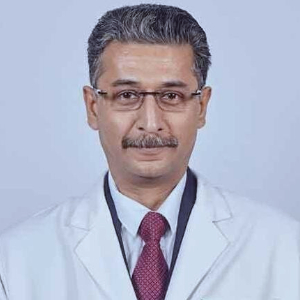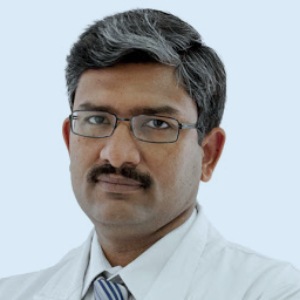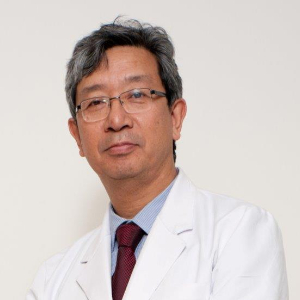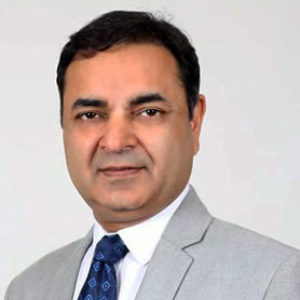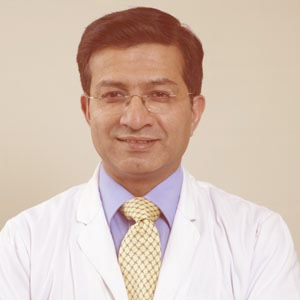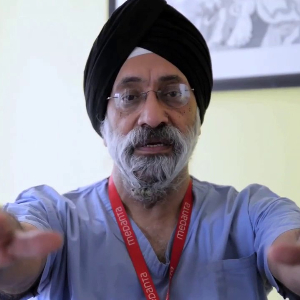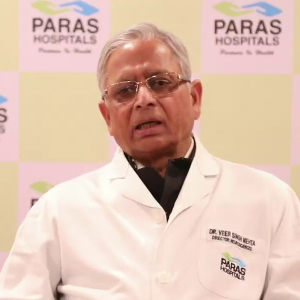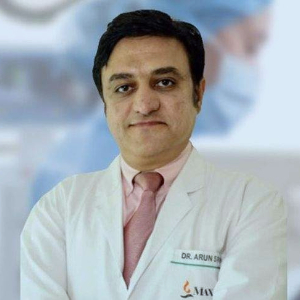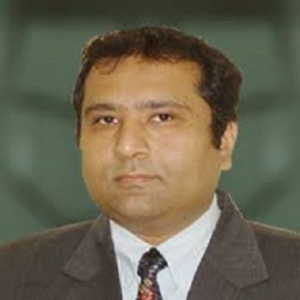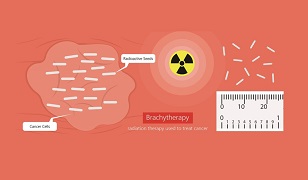Best Neurosurgeons in India for Brain Tumor Surgeries
Here are the most reputed Neurosurgeons in India for the surgical excision of all types of brain tumors.
- Neurosurgeon, Gurugram, India
- Over 22 years’ experience
Profile Highlights:
- Dr. Sandeep Vaishya is a renowned Neurosurgeon in India, with over 22 years of proficient experience in the field of advanced neurosurgery.
- He has closely worked with some of the top-notch institutes and hospitals in India.
- Dr. Vaishya is regarded as one of the top surgeons of Gamma Knife Surgery in South Africa and is also considered a renowned surgeon for brachial plexus injuries.
- Neurosurgeon, Gurugram, India
- Over 25 years’ experience
Profile Highlights:
- Dr. Aditya Gupta is one of the top Neurosurgeons in India who co-founded the Institute of Neurosciences at Medanta and functioned there as the Additional Director of the Department of Neurosurgery.
- He is an active member of the Congress of Neurological Surgeons (US), Neurological Society of India, International Gamma Knife Society Treasurer, Indian Society for Stereotactic and Functional Neurosurgery, and Skull Base Surgery Society.
- Neurosurgeon, Gurugram, India
- Over 32 years’ experience
Profile Highlights:
- Dr. Rana Patir is one of the most experienced and highly qualified Neurosurgeons in India.
- He holds an extensive experience of 32+ years as a neurosurgeon and has performed more than 10,000 neurosurgical procedures till date.
- Dr. Patir is an expert in all kinds of neuro and spine surgeries with a specialization in minimally invasive brain and spine surgery, Epilepsy surgery, pediatric neurosurgery, and neurovascular surgery.
- Neurosurgeon and Spine Surgeon, New Delhi, India
- Over 25 years’ experience
Profile Highlights:
- Completing over 9000 successful neurological procedures, and still counting, Dr. Sudhir Tyagi is one of the top-notch names in India, diligently catering to neurological assistance with his vast knowledge and adept expertise.
- In fact, Dr. Sudhir Tyagi is the first neurosurgeon to use the Image Fusion Technique to localize targets in the deep part of the brain to perform functional stereotactic surgeries. He has great experience in all types of brain and spine surgeries.
- Neurosurgeon, New Delhi, India
- Over 20 years’ experience
Profile Highlights:
- Dr. Bipin Walia is one of the most famous neurosurgeons who has performed over 7000 successful neurosurgeries so far.
- He earned his MBBS and MS (General Surgery) degree from Armed Forces Medical College, Pune, followed by which his, M.Ch(Neurosurgery) from All India Institute of Medical Sciences, New Delhi.
- Dr. Bipin Walia has over 20 years of experience with his outstanding performance earning him quite some rewards and recognition.
- Neurosurgeon, Gurugram, India
- Over 30 years’ experience
Profile Highlights:
- Dr. V P Singh is a renowned Neurosurgeon with over 30 years of veteran experience. His competence in cranial, spinal, and peripheral nerves has helped him successfully perform 400+ Intracranial Aneurysm surgical procedures.
- Dr. Singh has also been credited for initiating the Gamma Knife Unit and epilepsy surgery program at All India Institute of Medical Sciences, New Delhi.
- He is proactively involved in the treatment of arteriovenous malformations by radiosurgery techniques and is currently the chairman of the Institute of Neurosciences, Medanta.
- Neurosurgeon, Gurugram, India
- Over 38 years’ experience
Profile Highlights:
- Dr. (Prof.) V S Mehta is a leading Neurosurgeon in India and is considered among the best neurosurgeons in the world.
- He holds an experience of over 38 years in the field and is an expert in Brachial Plexus surgery, brain stem surgery, spinal tumor surgery, brain aneurysms, and brain tumor surgery.
- He has been honored with the Padma Shri for his dedication and contributions to neurosurgery and spine surgery in India.
- In Paras Dr. V S Mehta has been part of the team to first use the Image-Guided Brain Tumor Navigation Technology for Brain tumor surgery in India.
- Neurosurgeon, New Delhi, India
- Over 20 years’ experience
Profile Highlights:
- Dr. Arun Saroha is a renowned Neurosurgeon with extensive experience in the surgical treatment of all kinds of brain and spine disorders.
- He holds an experience of over 20 years in the field and has performed over 8000 neurosurgeries till date for different types of neuro and spinal diseases.
- Dr. Saroha is an expert in minimally invasive spine surgery, neuro-onco surgery, trauma surgery and is also among the few neurosurgeons with expertise in Pediatric neurosurgery.
- Neurosurgeon, Gurugram, India
- Over 20 years’ experience
Profile Highlights:
- Dr. Sudhir Dubey is a leading Neurosurgeon whose primary area of specialization is Endoscopic Neurosurgery and has been perfecting the procedure since 1998. He has also developed various new Endoneurosurgery techniques for surgeries on the brain, spine, and skull.
- He holds an experience of more than 2 decades in neurosurgery and finds interest in skull base surgery, Pituitary tumor surgery, Brain Aneurysm surgery, CyberKnife Radiosurgery, and brain and spine tumor surgeries.
- Neurosurgeon, New Delhi, India
- Over 27 years experience
Profile Highlights:
- Dr. Pranav Kumar is one of the best Neurosurgeons in India, having a good success record of over 27 years in performing deep-rooted tumors in the skull.
- Since 1996, Dr. Kumar has been working as a senior consultant neurosurgeon at Apollo Hospital, New Delhi.
- Dr. Pranav Kumar is skilled in surgeries for brain tumors deep-seated at the base of the skull and aneurysms affecting the cerebrovascular system.
- Dr. Kumar specializes in performing the complex ‘Auditory Brainstem Implant,’ where a Bionic device is inserted in the brainstem to recover the hearing capacity in deaf patients who cannot be treated with a cochlear implant.
- He completed microsurgery training at the National Neurosurgical Centre at Beaumont Hospital in Ireland.
Best Hospitals in India for Brain Tumor Surgeries
Indraprastha Apollo Hospital, New Delhi
- City: New Delhi, India
Hospital Highlights:
- Indraprastha Apollo Hospital is a 700-bedded multispecialty hospital in the heart of the capital of India. It is a part of Apollo Hospital group, one of India’s most reputed healthcare chains. Indraprastha Apollo Hospital has been accredited by Joint Commission International, making it the first internationally accredited hospital in the country in 2005.
- There are 52 specialties in the hospital with one of the best cardiology centers in the country. The hospital is also equipped with State of the art infrastructure facilities with the largest Sleep Lab in Asia and the largest number of ICU bed facilities in India.
- The hospital also has one of the largest dialysis units in India along with a dedicated Bone Marrow Transplant unit.
- The latest and highly advanced technologies that are installed in the hospital include Da Vinci Robotic Surgery System, PET-MR, PET-CT, Cobalt-based HDR Brachytherapy, Brain Lab Navigation System, Tilting MRI, Portable CT scanner, 3 Tesla MRI, 128 Slice CT scanner, DSA Lab, Endosonography, Hyperbaric Chamber and Fibro scan.
Fortis Memorial Research Institute, Gurugram
- City: Gurugram, India
Hospital Highlights:
- Fortis Memorial Research Institute is a multi-super-specialty, quaternary care hospital with 1000 beds. The hospital comprises reputed clinicians, and international faculty and is also equipped with cutting-edge technology. The hospital is a part of Fortis Healthcare Limited, a reputed chain of private hospitals in India.
- It is a NABH-accredited hospital that is spread across 11 acres of land and has a capacity of 1000 beds. The hospital has 55 specialties and is one of the premier health care centers in the Asia Pacific region popularly known as “the Mecca of Healthcare”.
- The hospital has 260 diagnostic centers and is also equipped with the latest and advanced techniques that include 3 Telsa which is the world’s first Digital MRI technology. The hospital also has world-class Radiation Therapy techniques which have been developed by leading technology experts from Elekta and Brain Lab.
Apollo Hospital, Chennai
- City: Chennai, India
Hospital Highlights:
- Apollo Hospitals, Chennai, is one of the best hospitals for heart care in India. Over the years, Apollo has expanded all over India, as a healthcare chain.
- India’s first ‘Only Pancreas’ transplant was performed in Apollo Hospital. The hospital is known for successfully performing Asia’s first en-bloc combined heart and liver transplant, and over the years, it has attained a remarkable achievement in the global healthcare space. Around 3-4 organ transplants are performed in the hospital per day.
- Equipped with over 500 beds, this hospital in Chennai was established in 1983 and since then has been among the most preferred hospital for patients from all over the world.
- The hospital holds accreditation of the NABH and JCI and is the first hospital in India to be ISO 9001 and ISO 14001 certified. It is also the first South Indian Hospital to receive subsequent reaccreditation from the JCI USA 4 times.
Medanta-The Medicity, Gurgaon
- City: Gurugram, India
Hospital Highlights:
- One of India’s best and largest multi-specialty hospitals, Medanta was built with the aim to bring India to the highest standards of medical care. The hospital has been providing the best medical services to its patients, since its inception, with care, commitment, and compassion.
- Equipped with 1250 beds, the hospital was founded by Dr. Naresh Trehan in the year 2009 with an aim to provide the best medical care at affordable costs. The hospital is spread across 43 acres and includes 45 operation theatres and 350 beds dedicated solely to ICU. The hospital includes over 800 doctors, and more than 22 specialty departments and has a dedicated floor for individual specialty in order to offer the best services under one roof.
- The hospital is considered one of the premier institutes in India for Cardiac Care and includes staffs and members of high caliber. The hospital has 6 distinct centers of excellence.
Max Super Specialty Hospital, New Delhi
- City: New Delhi, India
Hospital Highlights:
- One of the well-regarded providers in India committed to the highest standards of clinical excellence and patient care, Max Super Specialty Hospital is a part of Max Healthcare, which is the second-largest healthcare chain in India. Regarded as one of the most well-regarded healthcare providers in the country, Max Super Specialty Hospital is committed to the highest standards of clinical excellence as well as patient care. The hospital is also equipped with the latest technology as well as cutting-edge research. The hospital is known to deliver and ensure the highest level of patient care.
- The hospital has more than 500 beds and offers treatment for over 35 specialties. The hospital also holds the credit of having installed the first Brain Suite in Asia. This is a highly advanced Neurosurgical machine that allows MRI to be taken while surgery is ongoing.
- Other advanced and latest technologies are also installed in the hospital such as the 1.5 Tesla MRI machine, 64 Slice CT Angiography, 4D ECHO, LINAC, and 3.5T MRI machine.
Artemis Hospital, Gurugram
- City: Gurugram, India
Hospital Highlights:
- One of the most well-known hospitals in the Delhi NCR, Artemis Hospital is the first hospital in Gurugram to get accredited by the Joint Commission International.
- With more than 40 specialties, the hospital has been designed to be one of the most technically advanced hospitals in the country, with the best medical and surgical health care. The hospital has eleven special and dedicated centers, for Heart, Cancer, Neurosciences, etc.
- The latest technologies in the hospital include Endovascular Hybrid Operating Suite and Flat panel Cath Labs for the cardiovascular department, 3 Tesla MRI, 16 slice PET CT, 64 Slice Cardiac CT Scan, HDR Brachytherapy, and highly advanced Image Guided Radiation Therapy techniques (LINAC) are installed in the hospital.
- The hospital has won several awards as well, since its inception.
BLK Max Super Specialty Hospital, New Delhi
- City: New Delhi, India
Hospital Highlights:
- Equipped with 650 beds, BLK Superspecialty Hospital is the largest stand-alone private sector hospital in Delhi.
- With over 1500 healthcare providers and 150 globally renowned super specialists, the hospital is one of Asia’s largest Bone Marrow Transplant Centres. The hospital is known for having some of the best cancer doctors in the country.
- The hospital is NABH and NABL accredited and was inaugurated by the first Prime Minister of India. Pt. Jawahar Lal Nehru.
Gleneagles Global Hospitals, Chennai
- City: Chennai, India
Hospital Highlights:
- Established in 1999, Gleneagles Global Hospital, Chennai, is one of the top healthcare facilities in Southern India. It is part of the Gleneagles Hospital Chain, which is the fourth largest healthcare chain in the country. The hospital specializes in multi-organ transplants of kidneys, liver, lungs, heart, etc.
- The hospital has an excellent infrastructure and state-of-the-art lab and equipment set-up. The hospital boasts cutting-edge technologies, a highly skilled team of doctors and surgeons, and trained support staff. Located in Perumbakam, Chennai, it is one of India’s premier health care destinations. The hospital has performed some of the most complex surgical and clinical procedures in India including multi-organ transplantations.
- The hospital’s lung transplantation program is one of the best in the country. The hospital is known for having performed India’s first single lung transplant and first minimal invasive lung transplant. It is also the only Indian hospital to be associated with King’s College Hospital, London, United Kingdom for liver transplantations.
Fortis Hospital, Mulund, Mumbai
- City: Mumbai, India
Hospital Highlights:
- Fortis Hospital in Mulund is a 315-bed multi-speciality tertiary care hospital with five JCI accreditations that offers a wide variety of diagnostic and therapeutic services. The Fortis Hospital in Mulund delivers patient-centred treatment with cutting-edge technology, highly skilled and experienced surgeons, and paramedical staff.
- This institution houses Maharashtra’s largest multi-organ transplant centre. It is also the first heart transplant centre in western India to conduct 100 or more consecutive heart transplants in under four years. It is the only hospital in the city to have multi-organ transplants and has handled the youngest patient for angioplasty. Fortis Hospital Mulund now boasts the first advanced surgical robot in central Mumbai.
- Cardiology and heart surgery, urology, nephrology, neurosciences, orthopaedics, digestive care, emergency and critical care, and maternity care are among the services provided by the hospital.
Kokilaben Dhirubhai Ambani Hospital, Mumbai
- City: Mumbai, India
Hospital Highlights:
- Kokilaben Dhirubhai Ambani Hospital, Named after the wife of Indian industrialist Dhirubhai Ambani, the founder of Reliance Industries, this is one of the top hospitals in Mumbai. This 750-bed multi-specialty hospital became operational in 2009. Known as one of India’s most advanced tertiary care facilities, the hospital is designed to raise India’s global standing as a healthcare hub, with an emphasis on excellence in clinical services.
- Kokilaben Dhirubhai Ambani Hospital uses Protocol and Care Pathway based treatment models to ensure the best outcomes for patients.
- The hospital represents a confluence of top-notch talent, cutting-edge technology, state-of-the-art infrastructure, and, most importantly commitment.
- The hospital also holds the accreditation of the NABH, NABL, CAP, and JCI.
- The hospital has been recognized as the No. 1 Multispecialty Hospital in Mumbai and the West Zone for the fifth year in a row in 2020 by The Week.
What are Brain Tumors?
Brain tumor is a medical condition caused by a lump or a mass formed inside the brain. The cells in our body are constantly multiplying and growing, replacing the old, existing cells with new ones. In case of a brain tumor, the cells in the brain start multiplying and dividing in an uncontrolled manner which is not naturally recognized by the body. This rapid cell multiplication is different than how normal cells react which is primarily why these cells risk a chance of being cancerous in the long run.
There are approximately 130 brain tumor types that have been identified based on the type of cell multiplication, the particular location where the cell multiplication takes place, and on how quickly they can multiply.
The rapid multiplication of the brain cells gradually starts destroying the healthy brain cells and the spread of the unnaturally dividing cells are known to be one of the primary causes why the cancer condition formed originally in the multiplying cells can spread over time.
How unnatural Cell Multiplication affects the Brain
The brain is a soft, mushy, muscle cooped up inside and protected by the hardened skull. Rapid cell multiplication in such a restricted place, along with the infinite growth and spread of the unnaturally multiplying cells starts destroying the healthy cells in the brain that are responsible for basic functionality and emotions. This leads to brain damage or brain-dead risks. The multiplying growth in the restricted place also causes unnatural pressure in the brain, one of the primary reasons why brain tumor patients may often suffer brain damage or complete or partial brain paralysis.
Causes of Brain Tumors
Although it is difficult to find exact causes of brain tumors, following are considered major risk factors of brain tumors.
Family History & Heredity
Conditions like brain tumor can be passed on by generations and hence your family history or the presence of brain tumor or cancer running in your family can greatly affect your chances of getting a brain tumor. The cells in our body are filled with DNA, which is a chemical compound that makes our genes. The genes determine how the cells will function and a change in DNA inside the cells may cause the rapid cell multiplication to occur.
There are primarily two types of genes in our body-
- The oncogenes which are responsible for healthy growth and multiplication.
- The tumor suppressor genes that help keep the cell division under control by making the existing cells die so that the new healthy cells can replace them.
Brain tumor or possible cancer risks are caused when by either the oncogenes turning on or the tumor suppressor genes turning off causing an imbalance in the brain.
Past Medical Conditions
The risks of getting brain tumor is higher if you’ve suffered from cancer in the past. Medical science says, cancer cells stay dormant for years and may suddenly start reacting which is why the presence of cancer in your body once could be one of the primary reasons why rapid cell multiplication or spread of a dormant cancerous cell can still react in a different time. Usually, patients with leukaemia or non-Hodgkin Lymphoma as an adult may risk possible brain tumor conditions later in their years. This also includes childhood cancer conditions.
Exposure to Radiation
Repeated exposure to radiation can be one of the reasons for brain tumor. This can be due to a workplace hazard or due to chemo or radiation therapy as a part of the cancer treatment module. Repeated imaging tests like CT scan or MRI too can trigger this condition.
There is yet another type of radiation that we are all exposed to. Mobiles and power lines emit non-ionising radiation. The radiation in these are much lower and subtle than X-Ray or MRI radiations. However, repeated usage for a prolonged period of time can gradually lead to a possible case of brain tumor.
Low Immunity
Age
Obesity
Signs and Symptoms of Brain Tumors
Brain Tumor can either be malignant (cancerous) or benign (non-cancerous) based on the location, spread, and the multiplication rate of the cells. The tumor in the brain may often go unnoticed (without showing active symptoms) in many cases. However, most patients experience symptoms or signs that on diagnosis may reveal a possible brain tumor condition.
Symptoms can either be general or specific.
In case of general symptoms, the tumor’s growing size or spread often causes a pressure condition in the brain or spinal cord which reflects in the form of general symptoms.
On the other hand, a specifics symptom is experienced when a specific part of the brain gets deeply affected by the tumor, which causes repeated symptoms in the specific area. Both symptom types have to be diagnosed clinically to determine whether an active or passive brain tumor is present or not.
General Symptoms of Brain Tumors
Headache
Headache is one of the most common types of brain tumor symptom with almost 50% of patients experiencing changing headache patterns in the initial stages. This is primarily caused when the growing tumor puts pressure on the sensitive nerves and blood vessels in the brain. Patients often experience a change in their headache pattern in such cases, for instance,
- The headache can be more intense in the morning when you wake up
- The headache can be persistent with changing intensity throughout the day
- The headache may worsen if you exercise, change position, or cough
- Often symptoms like vomiting due to unbearable headache can occur
- The headache refuses to go away even after trying OTC medicines
However, not all headaches are a sign of a brain tumor. Sometimes, it can be due to an unhealthy lifestyle, late nights, and stress. If the headache refuses to go away, please visit a general doctor.
Personality Change
Brain tumors may cause unexpected mood swings and change in personality due to disrupted brain function. The most common personality changes will be in the form of
- Persistent irritation, even over small trivial matters
- Bipolar mood changes, for instance, you can be happy one minute and sinking in sadness the very next minute without any particular cause
- Lethargic attitude, procrastination, and reluctance to complete everyday tasks
- Change in attitude over something you used to love doing once, for instance, you may start hating your hobby.
- Frequent confusion over small matters
Personality changes are commonly observed if the tumor is present in one of the following locations in the brain:
- The Frontal Lobe
- The Temporal Lobe
- Part of Cerebrum
Seizures
Electrical impulses running through our nerves are primarily responsible for transmitting signals to and from the brain. Tumor in the brain pushes the nerves and the blood vessels to make space for itself which causes the disturbance in the electrical impulses leading to the medical condition we know as seizure.
This is yet another common brain tumor symptom with 50% of patients experiencing seizures as a result of a growing tumor. A tumor is also one of the early symptoms of brain tumor.
Memory Loss
The frontal lobe is usually responsible for reasoning or decision-making. A tumor in the frontal or parietal lobe may cause the following symptoms
- You may get easily confused. It starts with smaller things like directions and increases to names and people overtime
- You may experience difficulty in concentrating
- Your ability to multi-task or perform tasks quickly may get hampered
- You may experience acute forgetfulness. Short-term memory loss is also a possibility.
Mood Disorders
Mood disorders are slightly different than mood swings. In mood swings, you may experience a rapid change in mood, but in a mood disorder, the feelings are long-term and progressive in nature which often leads to self-destruction. Depression, anxiety can be a few mood disorders you experience. Usual mood disorders can be in the form of –
- Social anxiety
- Insomnia
- Loss of interest in things you used to like
- Feeling of self-worthlessness
Apart from these, other general symptoms may also include- a feeling of weakness, fatigue, nausea.
Specific Symptoms of Brain Tumor
Loss of Vision
Change in Speech, Reading and Writing
Trouble looking upwards
Loss of Balance
Lactation Problem in Women
Lactation problem in women due to pituitary gland tumor
Facial Numbness
If you’ve been experiencing any of these following symptoms for a long period of time without any progress or recovery in the condition, we suggest going to a neurologist for an in-depth analysis and performing some prescribed clinical tests to determine the underlying cause of the condition. In most cases, brain tumor is treatable if diagnosed and treated at the right time.
Types of Brain Tumors
A Brain tumor is typically caused by rapid cell multiplication in the brain. Often, tumors caused by this abnormal cell division starts spreading to neighbouring cells spreading the tumor as it progresses. There are primarily two categories of brain tumor, namely,
- Benign which is non-cancerous in nature
- Malignant which is cancerous in nature
Usually, a tumor spreading to the neighbouring regions is often considered an increasing sign of malignancy.
There are over 130 brain tumor types discovered by World Health Organization as of now, each classified and named according to the cell type they originate from. Brain tumors vary according to their size, shape, and region of origin. The most common type of brain tumors discovered as of now are-
Gliomas
A glioma is a type of brain tumor that originates in the glial cells of the brain, which are supporting cells primarily responsible for proper functioning of the nervous system About 30% of all brain tumors are classified under this category and 80% of the time, these cells can be malignant in nature.
Primarily, there four types of tumor producing glial cells which are classified based in their type and genetic features. The genetic features in these cells can be used to predict the behaviour or malignancy of the tumor over the course of time.
1. Astrocytoma
The tumor in this case originates in the cells known as astrocytes and can usually be found in the brain and spinal cord. These cells can either gradually grow into malignancy or can rapidly progress towards cancer. Seizures, headaches, or nausea can be common symptoms that are caused by Astrocytoma tumors.
2. Ependymomas
This tumor usually originates the ependymal cells present in the brain or spinal cord and may cause moderate to severe nervous imbalance since these cells are responsible for nourishment of the nervous system.
3. Oligodendrogliomas
This type of tumor originates in the oligodendrocyte cells which protect the nerves and the nervous system. These tumors can occur at any age and may cause excessive weakness or disability in the patient’s body.
4. Glioblastoma
Glioblastoma is a type of tumor that originates from astrocytes but are usually quite aggressively cancerous in nature. This condition is more common in older adults than children.
Craniopharyngioma
Craniopharyngioma are slow-growing tumors that typically form at the base of the skull or lower section of the spine. These type of brain tumor are more common in people between the ages 50-60 and are mostly benign in nature and are rare in nature, precisely making up 2% of all the primary brain tumor.
Medulloblastima
Medulloblastima is a malignant form of brain tumor which is mostly common in children aged 4-10 rather than adults. These tumor typically form in the cerebellum and is named after medulla, the bridge that connects the brain and the top part of the spinal cord together. Medulloblastima usually spreads from the location of origination and down the spinal cord.
Meningioma
Meningioma is a common intrcranial tumor which is usually benign in nature and constitutes about 10-15% of the brain neoplasms. Meninges, a membrane-like structure in our brain is where the tumor originally starts. Malignant meningioma is quite rare.
Pituitary Adenoma Tumor
Pituitary Adenoma Tumors are one of the most common forms of intracranial tumor right after gliomas and usually affect people between the ages 30-40. However, in some rare cases, this tumor type can affect children too but the good part is, these tumors can be successfully treated. Most of the pituitary adenoma tumors are fairly benign in nature and even if the tumor is malignant in nature, metastasis (spreading)to other parts of the body is fairly uncommon.
Haemangioblastoma
Haemangioblastoma are slow-growing tumors which are more prevalent in men than women. This tumor originates from the blood vessels in the cerebellum and is typically common amongst people between the ages 40-60. Haemangioblastoma are often big in size and may or may not be accompanied by a tumor. There are many other intricate brain tumor types. For detailed information, your doctor will perform diagnostic tests to determine the exact cause, location, intensity, malignancy, and curability of the tumor.
There are many other intricate brain tumor types. For detailed information, your doctor will perform diagnostic tests to determine the exact cause, location, intensity, malignancy, and curability of the tumor.
Brain Tumors Treatment
The treatment plan for a brain tumors depends on the size, type and location of the tumor in the brain, patient’s overall health and treatment preferences.
For benign (non-cancerous tumors), surgical or other forms of intervention to destroy the tumor are considered.
However, the treatment methodology involves radiation, chemo and other interventions in case of metastatic (cancerous) tumors.
Following are the treatment options for brain tumors also called Brain cancers.
Surgery
In Brain Tumor treatment, the first preference is always to remove the tumor.
Removing small tumors in less critical locations is easier. However, tumors located in critical and remote locations are challenging. In some cases, there is risk of harming vital functions like sight, hearing etc. Nevevertheless, neurosurgeons try and take out as much portion as possible for the tumor.
These days, top hospitals do minimally invasive Robotic Neurosurgeries which are able to do surgeries at remote locations with little or no damage to surrounding tissues.
Other Treatments for Brain Cancer
In addition to Surgery, often a combination of the following interventions is done for Metastatic Brain Tumors (Brain Cancers)
Chemotherapy
Chemotherapy is the use of anti-cancer drug that helps to slow or stop the growth of rapidly dividing cells that cause cancer. It prevents the growth of rapidly dividing cells by killing the dividing cells.
Despite its side effects, chemo is still the most widely used cancer treatment option. Unlike radiation and surgery which treats cancer cells at particular locations, chemotherapy drugs can kill cancer cells that have metastated (spread) to different organs in the body.
Radiation Therapy
Radiation Therapy is a kind of cancer treatment that uses high doses of radiation beams to kill cancer cells to shrink the tumors. Radiation kills the cancer cells by destroying the DNA. Cancer cells with damaged DNA fail to multiply and die. They are then removed by the body’s mechanism.
Brachytherapy
Brachytherapy is an internal beam radiation therapy technique where radiation seeds, the size of rice grains are placed in the location of tumor using a needle, guided by ultrasound imaging. The radioactive seeds keep emitting low dose radiation beams to the cancer over a long period of time. At one point, the seeds stop emitting radiation, but do not need to be removed.
Stereotactic Radiosurgery
Steretactic Radiosurgery (SRS) is an advanced form of radiosurgery where very high doses of radiation doses are beamed on a target spot using multi dimensional imaging. Stereotactic radiosurgery manages to damage cancer cells with minimal or no damage to surrounding healthy tissues. The well-known SRS options are:
- Linear Accelerator machines. Cyberknife is the most popular machine used today.
- Gamma Knife (less common today)
- Proton Beam Therapy: Advanced Intervention and available at select hospitals globally.
Immunotherapy
Immunotherapy (also called biologic therapy) is a new type of cancer treatment where the body’s immune system is boosted to help the body fight cancer by itself. Immunotherapy uses substances made by the body or in a laboratory to improve or restore immune system function.

